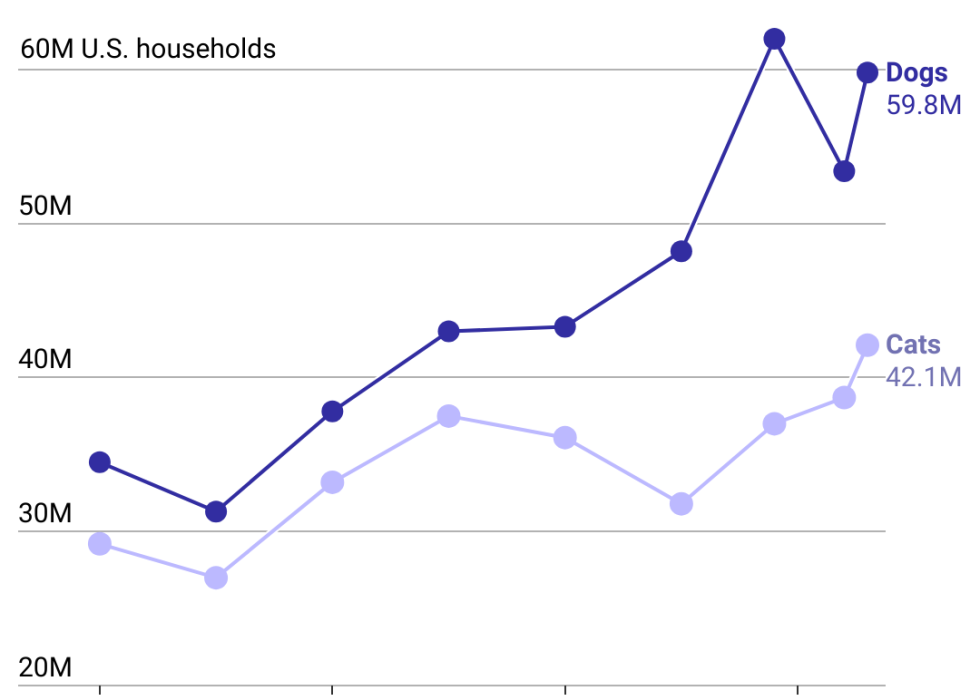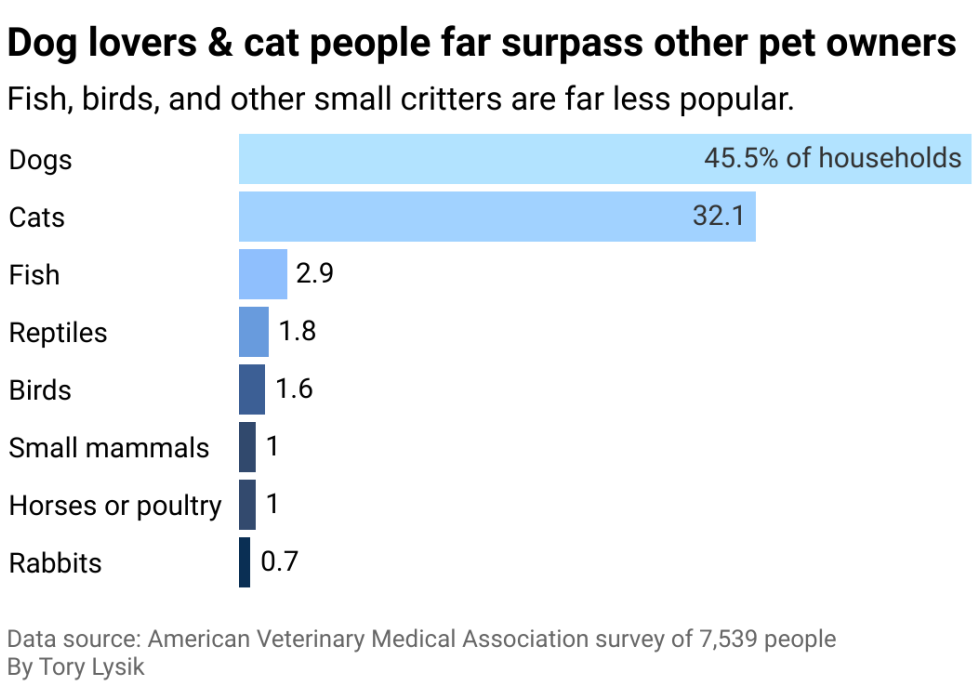Americans prefer dogs to cats as pets by a wide margin, according to the data

Pet ownership has steadily grown over the years: According to the American Pet Products Association, approximately 66% of households in the United States have a pet as of 2023, compared to 56% in 1988. While dogs are in more homes overall than cats, those with cats are more likely to have more than one at a time: per pet-owning household, there are an average of 1.5 dogs compared to 1.8 cats.
The COVID-19 pandemic and the ensuing shift to remote work drove much of this growth, with 1 in 5 American households adopting a new cat or dog between March 2020 and May 2021, according to the American Society for the Prevention of Cruelty to Animals. While these numbers have since dropped from the 2020 high, pet ownership remains significantly higher than at any other time since the 1990s.
Research also shows that household critters are rising in number and in the family pecking order. According to a 2023 Pew Research Center survey, 51% of pet-owning respondents said their pets are as much a part of the family as their human counterparts. Dogs, again, outperformed cats in this area as well: 5% more dog owners consider their pets equal members of the family compared to cat owners.
While pets are increasing in population and family rank, they are simultaneously decreasing in size. Living spaces are trending smaller, according to the National Association of Home Builders—and so are the pets that populate them. In 2022, the American Kennel Club reported that labrador retrievers had lost their 31-year streak as the most popular dog breed in the U.S., surpassed by the French bulldog in 2022; Chihuahuas have since overtaken both breeds as of 2024.

With single-person households at an all-time high at 29%, one reason Americans may gravitate toward dogs is their ability to form strong emotional attachments. A 2024 study published in the International Journal of Geriatric Psychiatry on older adults living alone in Germany found that dogs reduced feelings of loneliness significantly more than other types of pets. This is likely due to dogs' evolutionary makeup, which drives more interactive personality types, from cuddlers to playtime-seekers, compared to more independently minded cats.
Moreover, dog ownership has a direct impact on mental health that is more pronounced than pet ownership in general. In fact, a 2024 study published in JAMA Network Open analyzing the impact of pets on women with a history of child abuse found that emotional attachment to a dog led to reduced feelings of anxiety and depression; however, they had no such emotional attachment to cats.
For all the benefits of dog ownership, however, there is a cost. Overwhelmingly, dogs require more expensive and extensive care—including grooming, boarding, training, and veterinary expenses—than their scaly or feline counterparts. According to the AMVA, the average amount spent on a pet dog in 2024 was $1,740, compared to $1,311 for cats and $1,497 for other pets.
With pet ownership expected to become more expensive over the coming years, one way to reduce one-time expenses is opting into the latest trend of pet ownership: adopting a rescue animal over purchasing from a breeder. In addition to saving money, the decision can literally save lives. As Best Friends Animal Society found, if just 6% more prospective pet owners chose to adopt from shelters, shelter euthanasia would end—giving dogs, and even cats, something to wag about.
Story editing by Carren Jao. Copy editing by Paris Close. Photo selection by Ania Antecka.
